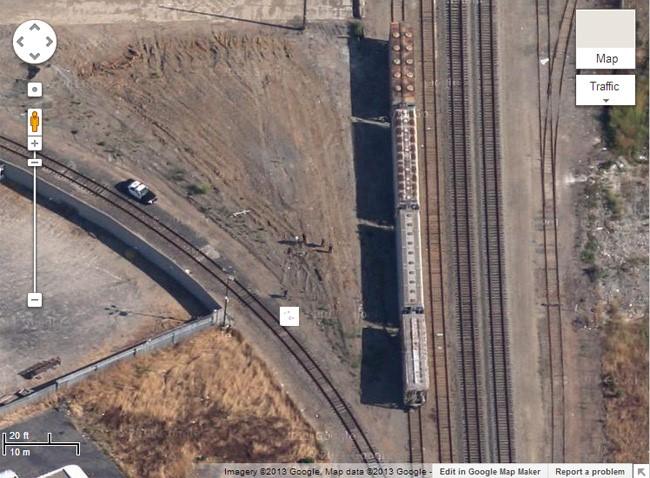 Tan Nguyen and Ken Smith had their cash and property taken by what some would call a modern day outlaw while driving on one of America’s busiest highways: Interstate 80 in Northern Nevada. The most disturbing thing about the two men’s story is the identity of the highwayman: a deputy for the Humboldt County Sheriff’s Department.
Tan Nguyen and Ken Smith had their cash and property taken by what some would call a modern day outlaw while driving on one of America’s busiest highways: Interstate 80 in Northern Nevada. The most disturbing thing about the two men’s story is the identity of the highwayman: a deputy for the Humboldt County Sheriff’s Department.
“It’s like Jesse James or Black Bart,” Nguyen’s attorney, John Ohlson, said of the actions of Deputy Lee Dove. Nguyen alleged that Dove stopped him for driving three miles over the speed limit on September 23, 2013, then forced him to turn over $50,000 in cash he had won gambling at a casino.
“He wasn’t charged with anything,” Ohlson said of his client. “He had no drugs in his car. The pretext for stopping him was he was doing 78 in a 75.”
He wasn’t even given a ticket.
Dove made Nguyen, a California resident, sign a waiver surrendering the cash to the county. If Nguyen didn’t turn over the cash, Dove threatened to have his car towed and abandon him in the desert. Dove was exercising a questionable legal doctrine called asset forfeiture which gives law enforcement the right to seize money or property from suspects.
Illegally Seized Cash Displayed On Facebook
If that wasn’t bad enough, the sheriff’s department actually publicized the illegal seizure. Dove posted a picture of himself and Zyla the police dog posing with the cash on his Facebook page. The department also sent out a press release that read: “This cash would have been used to purchase illegal drugs and now will benefit Humboldt County with training and equipment. Great job.”
To get his money back, Nguyen had to sue Humboldt County, Dove and Sheriff Ed Kilgore, and the county eventually settled with Nguyen for $50,000 and $10,000 in attorney’s fees. In the suit, Ohlson contended that Dove had violated Nguyen’s Fourth Amendment rights. The Fourth Amendment bans unreasonable search and seizure.
Meanwhile, Dove allegedly also took both $13,800 in cash and a legally owned pistol from another man, Ken Smith of Colorado, on Dec. 16, 2013. In that incident Dove detained Smith because he had a warrant with the name Ken Smith on it. The Ken Smith mentioned in the warrant is African American; the man Dove stopped was white.
Like Nguyen, Smith was eventually allowed to leave after signing a document surrendering the cash and his .40 caliber Ruger pistol. Smith claims he was so frightened by Dove that he now suffers from emotional distress. Like Nguyen, Smith has sued Humboldt County in federal court.
“It’s pretty scary to be out in the middle of nowhere on the side of the road and be told all your stuff is going to be taken away,” Smith’s attorney, Jeff Dickerson, told the Associated Press.
Humboldt County is around 185 miles east of Reno on I-80.
Forfeiture Corridors A Growing Problem
The seizures in Humboldt County are an example of a nationwide growing problem called forfeiture corridors. In a forfeiture corridor, law enforcement officers stop vehicles, seize cash from motorists then let them go. The idea is that the cash belongs to drug dealers or other criminals but law-abiding citizens are increasingly getting caught in these traps.
Story continues below video
Some well-known forfeiture corridors include:
- I-40 in Tennessee. Off the Grid News and Channel 5 Nashville reported that seizures on the corridor were so profitable that local cops had set up rival drug taskforces to seize cash from drug runners.
- I-70 through Madison County in Southern Illinois. Huffington Post columnist Radley Balko reported that police regularly stop cars with out of state plates and search for cash. “The joke around our office is that all you need for probable cause in Madison County is an Arizona, New Mexico, Texas, or Florida license plate,” local public defender John Rekowski said of the area’s police. Balko estimated that police in Madison County may have made as much as $5 million from forfeitures.
- I-95 in Camden County, Georgia. Institute for Justice attorney Nick Sibilla noted that Sheriff Bill Smith’s deputies seized over $20 million for drivers in two decades.
“Asset forfeiture today, the way it exists federally, as well as in many states, is an institutional corruption,” retired Judge Jim Gray said of the practice, in a Forbes.com column.
What do you think about the “policing for profit” controversy? Let us know in the comments below.
Sign up for Off The Grid News’ weekly email and stay informed about the issues important to you











